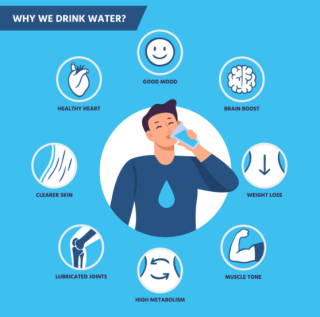How to Tackle Post-Meal Sleepiness: Understanding Blood Sugar Spikesupdated at Nov 08, 2025 1,570 1,570 The Post-Lunch Slump: Understanding and Tackling Blood Sugar SpikesEver feel incredibly tired after eating lunch? You're not alone.This common experience is often linked to blood sugar spikes, |
Natural Ways to Boost Low FSH Levels in Mencreated at Oct 08, 2009 1,421 1,421 If you're concerned about low follicle-stimulating hormone (FSH) levels, |
The Importance of Hydration: How Much Water Should You Drink?created at May 08, 2009 1,439 1,439 Proper hydration is crucial for numerous bodily functions, |

